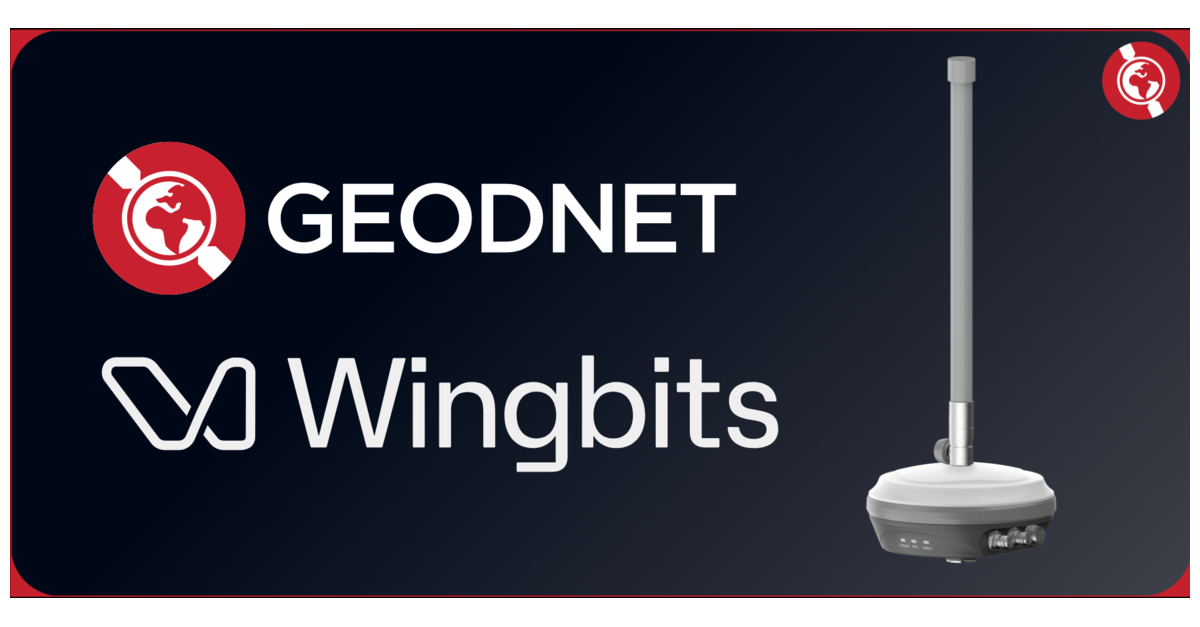Latest Wingbits News

3 months ago
Wingbits: Revolutionizing Aviation Data Tracking
Wingbits: Revolutionizing Aviation Data Tracking
The Swedish startup, Wingbits, is challenging established players like FlightAware and Flightradar24 in the aviation data industry with a decentralized approach. By leveraging blockchain technology, Wingbits is rewarding hobbyist data collectors through its decentralized physical infrastructure network project, DePIN. This innovative project aims to create a tamper-proof tracking network by launching a satellite in collaboration with Spire Global, carried by SpaceX's Transporter-13 mission. The satellite will validate Wingbits' ground data, enhancing the accuracy of the information provided by the company.
Wingbits' CEO, Robin Wingardh, highlighted the significance of the satellite launch during Consensus Hong Kong. The company's existing network of 2,200 on-the-ground nodes managed by flight enthusiasts worldwide will be complemented by the satellite, further strengthening the community-powered tracking network. Unlike traditional industry players, Wingbits rewards its data providers with Solana testnet tokens, fostering a global network of contributors from over 90 countries tracking 120,000 unique flights daily. The reward system allows contributors to exchange tokens for various services, such as air miles and airport lounge access.
The addition of satellite-tracking capabilities marks a significant milestone for Wingbits in its mission to disrupt the aviation data industry. By ensuring data accuracy and protection against spoofing, the company aims to set itself apart from competitors like FlightAware and Flightradar24. With recent funding of $5.6 million from investors like Borderless Capital and Bullish Capital, Wingbits is poised to expand its operations and revolutionize flight tracking in the era of Web3.

4 months ago
Wingbits Raises $5.6M to Revolutionize Rewards-Based Plane Tracking with DePIN Technology
Wingbits Raises $5.6M to Revolutionize Rewards-Based Plane Tracking with DePIN Technology
Wingbits, the Web 3.0 startup based in Stockholm, Sweden, has secured $5.6 million in funding led by Borderless Capital and Bullish Capital, with support from Spartan Group, Tribe Capital, Antler, SNZ, and Heartcore. This funding round brings Wingbits' total funding to $9.2 million as they introduce the first decentralized physical infrastructure network (DePIN) for aviation. The company aims to become the largest airplane tracking network globally by implementing well-designed incentives and execution strategies, as stated by Álvaro Gracia, Partner at Borderless Capital.
This recent funding follows a $3.5 million seed round just six months ago, supported by investors like Borderless Capital, Tribe Capital, and Antler. Co-founded by Robin Wingardh and Alex Lungu, Wingbits has experienced rapid growth, expanding its network at a rate six times faster than any previous flight tracking system. Alasdair Foster, CEO of Bullish Capital, expressed excitement about partnering with Wingbits, highlighting their disruptive approach to the flight tracking industry by utilizing blockchain to incentivize high-quality data supply.

7 months ago
Wingbits Launches Innovative Flight-Tracking Hardware and Expands Global Network
In October, Wingbits has made significant strides in enhancing its flight tracking capabilities, marking a busy month for the community. The company has partnered with GEODNET and HYFIX to introduce innovative flight-tracking hardware, which is now available for pre-order. These nodes are designed to collect real-time ADS-B data, rewarding users for their contributions. Early adopters can benefit from a $100 discount on their pre-orders, with deliveries scheduled to begin in January 2025. Interested customers can purchase the hardware through various trusted distributors across the globe.
The Wingbits network has also reached a milestone, surpassing 2,000 active stations worldwide, thanks to the support of its community. This expansion sets a new standard for real-time aviation data, and users are encouraged to explore the upgraded network map to view all active stations and aircraft layers. Additionally, Wingbits hosted a live AMA session with GEODNET, addressing community questions and discussing future plans. The company has launched an Ambassador Program on Zealy, inviting enthusiastic members to help promote the project and connect with other innovators.
To engage the community further, Wingbits held a global hardware giveaway, with three winners selected to receive the first-ever Wingbits-approved flight-tracking devices. The company also highlighted the importance of community-driven solutions in flight tracking, emphasizing the accessibility of tracking over 30 million flights globally in 2024 through ADS-B technology. As the month wraps up, Wingbits encourages users to share their experiences and setups on social media, fostering a vibrant community dedicated to aviation and data accuracy.

7 months ago
Wingbits: Revolutionizing Flight Tracking with Decentralized Technology
In recent years, flight tracking has evolved significantly, allowing anyone with a smartphone or computer to monitor aircraft movements in real-time. In 2024 alone, over 30 million flights were recorded globally, averaging around 100,000 flights per day. This accessibility is primarily due to the implementation of ADS-B (Automatic Dependent Surveillance-Broadcast) transponders, which most aircraft are equipped with. These systems broadcast critical information such as position, speed, and altitude, which is captured by ground stations and satellites. Popular platforms like FlightRadar24 and FlightAware utilize this data to provide users with detailed flight information. However, the reliance on volunteer contributions has led to issues with coverage accuracy and completeness, highlighting the need for a more reliable system in the aviation industry.
Enter Wingbits, a groundbreaking initiative that seeks to revolutionize flight tracking through decentralized infrastructure. By leveraging a DePIN (Decentralized Physical Infrastructure Network) model, Wingbits not only offers real-time flight data but also incentivizes users to participate in the network. Participants can earn $WINGS tokens by running specialized tracking devices, such as the HYFIX WB200 and HYFIX MGW310, which collect ADS-B data. This innovative approach transforms flight tracking into an interactive experience, encouraging more individuals to contribute valuable data and improve the overall accuracy of global aviation information.
Wingbits represents a significant shift in the flight tracking landscape, combining blockchain technology with community engagement. As the network expands, it promises enhanced coverage and a sustainable token economy, where users are rewarded for their contributions. This model not only democratizes access to flight data but also fosters a collaborative environment for aviation enthusiasts and professionals alike. With Wingbits, the future of flight tracking is not just about monitoring aircraft; it's about creating a comprehensive, community-driven network that benefits everyone involved.

7 months ago
The Rise of Decentralized Physical Infrastructure Networks (DePIN)
The concept of Decentralized Physical Infrastructure Networks (DePIN) has gained significant attention in 2024, although its roots trace back further. The term DePIN was popularized in late 2022 by Messari, which categorized various projects under this umbrella. Among the pioneering DePINs, Helium stands out with its extensive network of over 996,000 routers and a market cap exceeding $1 billion for its HNT token. Helium exemplifies the practical benefits of decentralization, providing localized 5G coverage that traditional telecom infrastructures often overlook. This shift towards decentralized solutions reflects a growing recognition of the value they bring beyond mere security and resistance to censorship.
As the DePIN landscape evolves, experts like Álvaro Gracia and Sean Carey are exploring new categorizations for these networks. They distinguish between 'bespoke' networks, which require specific hardware like Helium, and 'commodity' networks that can operate on everyday devices, such as smartphones. Projects like NATIX and Wingbits illustrate this trend, enabling users to earn tokens by contributing data through their devices. These innovations suggest that the potential for disruption in the DePIN space is vast, particularly as more individuals can participate without the need for specialized infrastructure.
Looking ahead, DePINs are poised to transform various sectors, including electric vehicle (EV) charging infrastructure. With EV adoption outpacing the establishment of public charging stations, decentralized solutions are emerging to connect EV owners with private chargers. Initiatives like PowerPod leverage token incentives to encourage participation, while Minima explores a model where tokens manage access rather than serve as payment. This approach could redefine how users interact with charging infrastructure, blending decentralized technology with traditional fiat payment systems, thus broadening the appeal and usability of DePINs in everyday life.

8 months ago
Wingbits Launches Pre-Order for Revolutionary Flight Tracking Device
Wingbits has announced a significant milestone in its mission to revolutionize aviation transparency and efficiency through a decentralized flight tracking network. Over the past year, the company has been building a global community of flight trackers who have contributed to the beta network using their DIY devices. This grassroots effort has laid the groundwork for the launch of the first Wingbits Approved device, developed in collaboration with GEODNET and HYFIX. Starting today, users can pre-order this cutting-edge hardware, which will be delivered in January 2025, at a special introductory price that includes a $100 discount for early adopters.
The newly launched device integrates advanced technology to provide real-time, centimeter-level precision flight tracking data. By utilizing a combination of Wingbits’ blockchain platform and GEODNET’s decentralized GPS network, the hardware allows aviation enthusiasts and tech innovators to contribute to a unique flight tracking ecosystem. Contributors will be rewarded with $WINGS tokens based on their device's performance, incentivizing them to keep their hardware active and maximize data collection. This initiative aims to create the most accurate and expansive real-time map of the skies, benefiting both the aviation industry and its participants.
To get involved, interested users can pre-order the HYFIX WB200 and HYFIX MGW310 devices through various distributors worldwide. The process is straightforward: register a location, purchase the device, and extend the reservation using a discount code. With the launch of this innovative hardware, Wingbits is poised to lead the charge in transforming aviation tracking, making it more accessible and rewarding for contributors. This initiative not only enhances flight safety and transparency but also fosters a community-driven approach to aviation technology.

9 months ago
Partnership Announcement: Advancing Secure Flight Tracking with Professional-Grade Nodes
Wingbits Partners with GEODNET Foundation to Develop Professional-Grade Flight Tracking Nodes for Secure ADS-B Infrastructure. The partnership aims to qualify new nodes for reliable ADS-B and RemoteID tracking data, offering secure location capabilities and triple-band GNSS signals. Wingbits plans to launch the nodes on October 1st, 2024, with a goal of expanding the network to over 10,000 stations by 2025.

a year ago
The Power of Decentralized Physical Infrastructure
Decentralized physical infrastructure (DePIN) is a growing field that integrates technology into everyday life, making it more accessible and user-friendly. The Helium Blockchain is a prime example of DePIN's power, offering a new way of thinking and simplifying complex Web3 concepts. DePIN projects like Wingbits democratize valuable data sharing and reward users through token infrastructure. The ecosystem is expanding with two types of DePIN: Commodity, which uses everyday hardware for scalability and inclusivity, and Bespoke, which focuses on precision and optimization with custom hardware.
Signup for latest DePIN news and updates